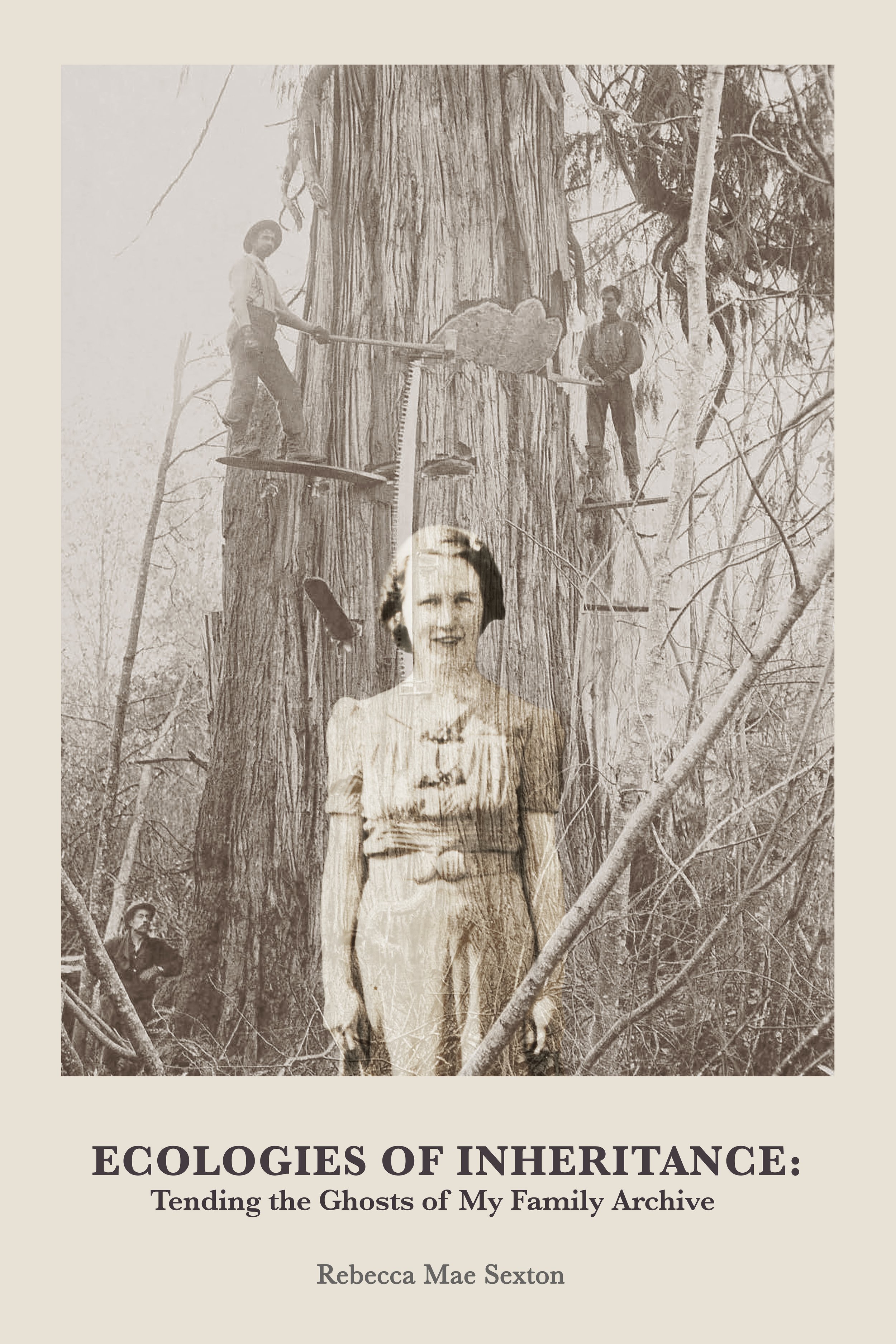rebecca sexton
class of 2021
Rebecca Sexton is a multidisciplinary artist and writer who grew up in Washington, surrounded by western red cedars, Douglas firs, and western hemlocks. She earned a BA in Liberal Arts from St. John’s College (Annapolis) and MFA in Studio Art at the San Francisco Art Institute. She is currently pursuing her MA in Visual and Critical Studies at the California College of the Arts.
In her artistic practice, Sexton examines the effects of grief, gendered violence, and resource extraction on her own family and the land. Sexton also conducts research into how personal histories intertwine with public histories. These hidden inheritances center both practices. Using public and private histories as departure points, Sexton asks: What would it take to fully recognize the debt?
In her recently completed master’s thesis, “Ecologies of Inheritance: Tending the Ghosts of My Family Archive,” Sexton juxtaposed historical photographs of the timber industry alongside her own family’s archive in an attempt to exorcise these haunted pasts.
Rebecca’s Thesis
Ecologies of Inheritance: Tending the Ghosts of My Family Archive
Family archives serve as a rich topic in the history of photography, notably taken up by Roland Barthes and Marianne Hirsch. However, these scholars do not adequately address how family archives intertwine with public archives. Through my research into private and public collections, I address this relationship with special attention to inheritance. Specifically, I link the photographs of Ethel Mae Sexton, my own grandmother, with Darius and Tabitha Kinsey’s documentation of the timber industry. I demonstrate their entanglement with the geography of the Pacific Northwest by juxtaposing readings of negative and positive photographs against mycorrhizae. I reveal the connections between photographic practices and symbiotic networks of kin. Ultimately, I argue that these photographs can be understood as residues that haunt the inheritors of familial ecologies. By placing their own archival objects into a relationship with public ones, the inheritors are able to tend to their memory and address inherited trauma.


